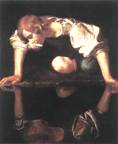The Butcher's Blade is chapter one in White Heat 
![]()
White Heat: People and Technology,
by Carroll Pursell, Ph.D. (1994) from a BBC television series on a history of tools and technology.
Pursell's argument | What is the scope of technology? | Defining terms | Details | Conclusions
What is technology that tools are so necessary; that technologies play a huge role in sustaining our contentment?
"Fortunately, tools are rich in meaning. Like any other texts they can be 'read'; careful deconstruction can reveal layers of meanings in their production and use."
Pursell, p. 14.
Examining the complexity of Technology
Technology is a complex arrangement of tools for a purpose
The power of technology arises from the fact that:
the combined influence is greater than the sum of its parts
The intricacy of technology is inherent in the knowledge of the materials and techniques.
Is the burden for the proper use of tools on the user, the maker, or the inventor?
Reread your notes on Pursell, summarize and explain what his three to five main points are:
- A) objects as mere artifacts misses the point
- B) implements
- 1b. reveal cultural norms,
- 2b. desired outcomes,
- 3b. material constraints
- C) language
- D) the hand axes
- E) exaptation
- F) Aristotle
- G) Lechtman
- H) Myths

 The dead speak to us constantly from the past if only we could understand them.
The dead speak to us constantly from the past if only we could understand them.
Exchange your notes.
Combine your notes√
By taking notes together tell us a centrally important fact about technology from Pursell pp. 6-63.
This is not in the text:
Technology
the world originates from:
Tekne or tekth + logos fit together or mesh + the word or speech (study)
a systematic understanding and practical knowledge of the applied arts and
sciences.
Š The study of “objects and products that allow us to do things” (Pursell. 14) or the search for the meaning of the inventions and discoveries that lead to the tools people use to solve problems.
Š A problem is the perceivable difference between an existing and a desired state of affairs.
Meaning & myth
"One suspects that the scientists of the period (1900s) wanted very much to find in nature that which they considered natural ( paternalistic nuclear family ) in human society."
Lesson:
cultural significance is reveled in what we want to believe as much as it is displayed by the use of tools in performing tasks we need, want, and hope to achieve.
Myths are stories about what we are taught by compilations of discoverable beliefs from the past concerning our origins, conditions and acceptable behavior.
"the agony of Hephaestus (Vulcan in Latin) in his relationship with his craft of smith seems more genuine. The god of fire was chosen to bind Prometheus to the rock."
"your craft is not to blame for what must be inflicted now."
Prometheus
The Titan who brought fire, defying the Gods, from heaven to the human race.
The new Prometheus is Frankenstein and the role of technicians and scientists who are inventing our world.
Icarus and Daedalus
Son and father (master craftsman) who having constructed the maze at Knossos had to escape from the Maze or labyrinth, which was built to enclose the Minotaur or monstrous bull (domesticated?) – the ravenous creature who devoured people.
Narcissus and Echo
The handsome youth and beautiful woman (wood nymph). He could not distinguish between his own and Echo’s beauty, his lover, and lusted after his own reflected mirror image.
Are we a narcissistic culture because of our technical sophistication?
Carravagio's painting of the beautiful Narcissus, entranced by his power to deceive himself.
Michelangelo Merisi da Caravaggio (Italian artist; 29 September 1571 – 18 July 1610)
![]()
What may we conclude?
The history of tool use from the earliest human remains reveals that in the operating on materials to create artifacts and implements to solve problems humans unintentionally modified their surroundings, their social groups, and their cultural legacy –while intentionally altering their behavior– such that we are both shapers of and shaped by the variety and integration of the many tools we use as means to achieve our ends.
Develop a theme:
This chapter is filled with examples that could well fit into your first formal paper on "What is technology?" By using all of the authors analytically what do you conclude? The paper you should start to work on comes due after your interviews.
It is a formal essay that deals with using examples from three authors: Postman, Pursell, & Pacey together with these web based materials to define technology using frequent evidence.
The best way to use that evidence is in an interwoven manner. By that I mean interweave combined examples from each author's separate examples. Do so logically to make a case that technology is a powerful, if not fully understood, or mistaken force in our lives.
That is a theme of the Postman book you started with in the Judgment of Thamus.
is the state (status quo) or condition of satisfying ones needs, desires, or dreams.
 How
are these stories tied to Thamus, in
the meaning we derive from ancient symbolic stories?
How
are these stories tied to Thamus, in
the meaning we derive from ancient symbolic stories?
 From the text:
From the text: 
